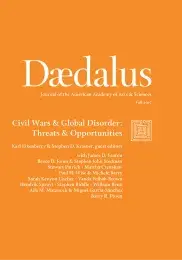Civil Wars as Challenges to the Modern International System
The current international system is based on Westphalian principles in which authority is defined territorially. Within this territory, the state has sole jurisdiction. Adherence to these principles has contributed to the decline of interstate war. Conversely, applying these principles and correlated norms to states that gained their independence after 1945 has contributed to civil conflicts. These norms are opaque, as is the case with the principle of self-determination; or they lock in an unstable status quo, as with uti possidetis, the principle that borders inherited at the moment of independence should always be maintained; or they are inconsistently applied and often violated, as with the principle of noninterference. Consequently, they provide poor guidelines as to when, and on which grounds, external intervention in civil wars might be warranted. I argue that the degree to which the combatants challenge Westphalian principles should guide policy responses. Furthermore, the international legal regime should reconsider uti possidetis. In some instances, partition might be a reasonable solution to civil wars.
The Westphalian agreements of 1648 set Europe on a course through which political authority became territorially defined and juridically autonomous within recognized borders. In the centuries since, these principles of order came to define the very notion of what qualifies as “domestic” politics and what is “international.” Through these principles, European states devised a mode of governance that demarcated spheres of jurisdiction and thereby facilitated regular interstate relations.
The treaties of Osnabrück and Münster set the foundations for the Westphalian system, articulating a particular logic of organization that differed in several key aspects from the preceding feudal order. The feudal legitimation of authority, based on personal ties, contrasted with the Westphalian territorial definition of authority. Moreover, Westphalia presupposed, in principle, a hierarchical government within the territorial space of a given state. Juridically, Westphalia recognized no higher authority than that of the sovereign ruler, in contrast to transterritorial imperial and religious claims of emperors and popes. As the conduit between the domestic realm and interstate relations, the sovereign ruler would handle international affairs. . . .
To read the full essay, access the PDF.
